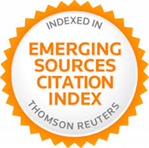Poems in Loquillo’s Songs: Experimentation and Learning about the Musical Structure
DOI:
https://doi.org/10.37536/preh.2022.10.2.1601Keywords:
Loquillo, musical form, song, musical adaptationAbstract
Loquillo’s music has been part of several generations since the beginning of the eighties. Apart from his vast musical production focus on rock, his approach to poetry has three high points, through the interpretation of musical adaptations in La vida por delante (1994), Con elegancia (1998) and Su nombre era el de todas las mujeres (2011). This meant a new conceptualization of the work flow around music, which would have to adapt, as other authors have done, to the conditioning factors of pre-existing poetry. This article proposes an approach to the songs that make up these works from the point of view of sound structure. In this way, an analysis of the musical form was carried out based on listening as an explanatory source, thus emphasizing its didactic nature. The blocks that derive from the study of each song illustrate the way in which Gabriel Sopeña’s work when setting music goes through various organizational models, from the most prototypical to others treated with greater freedom, parallel to the configuration of the selected texts. Consequently, not only through varied instrumentations or incursions into various styles, but through the repetitions and contrasts typical of the musical form, Loquillo penetrates into artistic dimensions that make him break away from predictable formal ties, thanks to the depth and complexity of literary references.
References
Arellano Ayuso, Ignacio (2011). Los rostros del poder en el siglo de oro: ingenio y espectáculo. Sevilla: Renacimiento.
Arroyo Almaraz, Antonio (2012). "Poética postmoderna transversal a las artes y la literatura: Línea Clara", in Literatura y Espectáculo, ed. Rafael Alemany Ferrer y Francisco Chico Rico. Alicante: Universitat d'Alacant / SELGYC, 53-62.
Bas, Julio (1947). Tratado de la forma musical. Buenos Aires: Ricordi.
Benedetti, Mario (2000). Acordes cotidianos. Buenos Aires: Vergara & Riba.
Borges, Jorge Luis (2011). Poesía completa. Barcelona: Lumen.
Bianciotto, Jordi (2020). "En el peor momento, la poesía siempre es la respuesta", La Opinión de Málaga, <https://www.laopiniondemalaga.es/cultura-espectaculos/2020/07/24/peor-momento-poesia-respuesta-27488230.html> (21 de octubre de 2021).
Bordons, Glòria y Casals, Albert (2012). "Poesia, música i escola. Un triangle sonor", Temps d'Educació, 42: 11-30. <https://bit.ly/34orMBk> (21 de octubre de 2021).
Bravo, Edu (2019). "De la Orquesta Mondragón a Loquillo: hablamos con Luis Alberto de Cuenca sobre sus canciones", Vanitiy Fair, <https://www.revistavanityfair.es/cultura/entretenimiento/articulos/de-la-orquesta-mondragon-a-loquillo-hablamos-con-luis-alberto-de-cuenca-sobre-sus-canciones/38431> (21 de octubre de 2021).
Cuenca, Luis Alberto de (2006). La vida en llamas. Madrid: Visor.
Cuenca, Luis Alberto de (2007). Los mundos y los días. Poesía 1970-2002. Madrid: Visor.
Gamoneda, Antonio (2019). Esta luz. Volumen I. Poesía reunida (1947-2004). Epílogo de Miguel Casado. Barcelona: Galaxia Gutenberg.
García Lorca, Federico (1999). La aurora de Nueva York. Barcelona: Lumen.
Gil de Biedma, Jaime (2009). Jaime Gil de Biedma. Prólogo Fernando Delgado. Madrid: El País.
Gil de Biedma, Jaime (2016). Las personas del verbo. Prólogo de James Valender. Barcelona: Galaxia Gutenberg.
Hernández, Virginia (2012). "Loquillo: 'Seguimos en un guerracivilismo absurdo'", El Mundo, <https://www.elmundo.es/elmundo/2012/02/15/ocio/1329330218.html> (21 de octubre de 2021).
Hidalgo, Luis (1995). "La poesía ha de estar al alcance de todos", El País, <https://elpais.com/diario/1995/11/03/cultura/815353207_850215.html> (21 de octubre de 2021).
Laínez, Martín (2018). "Loquillo: 'No me creo ni mejor ni peor, sino distinto'", ABC de Sevilla, <https://sevilla.abc.es/cultura/sevi-no-creo-mejor-peor-sino-distinto-201809232027_noticia.html> (21 de octubre de 2021).
Losilla, Juan Francisco (2021). "Loquillo: 'No soy de la casta de artistas que espera a que el temporal amaine'", Heraldo <https://www.heraldo.es/noticias/ocio-y-cultura/2021/11/05/loquillo-principe-felipe-concierto-zaragoza-1531382.html> (21 de octubre de 2021).
Madoery, Diego (2018). "La forma canción en el rock: el caso de Charly García". Actas de la XXIII Conferencia de la Asociación Argentina de Musicología y XIX Jornadas Argentinas de Musicología del Instituto Nacional de Musicología "Carlos Vega": 219-230.
Marc, Isabelle (2013). "Brassens en España: Un ejemplo de transferencia cultural", Trans. Revista de Traductología, 17: 139-149. DOI: https://doi.org/10.24310/TRANS.2013.v0i17.3232
Martínez Cantón, Clara Isabel (2010). "Innovaciones en la rima: poesía y rap". Rhythmica. Revista Española De Métrica Comparada, 8: 67-94. DOI: https://doi.org/10.5944/rhythmica.13095
Mateos, José (1990). Una extraña ciudad. Sevilla: Renacimiento.
Nappo, Daniel J. (2021). The poetry and music of Joaquín Sabina. An angel with black wings. Londres: The Rowman & Littlefield Publising Group.
Neruda, Pablo (1999). Antología poética. Barcelona: Óptima.
Núñez, Raúl (1974). People. Cuadernos Ínfimos 52. Barcelona: Tusquets.
Pérez, Jorge (2009). "Driving with La Movida: The Rock 'n' Road Aesthetics of Loquillo's Rock Ibérico", Journal of Spanish Cultural Studies, 10(2): 189-205. DOI: https://doi.org/10.1080/14636200902990703
Ricks, Christopher (2016). Dylan poeta: Visiones del pecado. Madrid: Los Libros de la Catarata.
Salinas, Pablo (1999). Antología poética. Selección y nota preliminar de Julio Cortázar. Madrid: Alianza Editorial.
Salvat Papasseit, Joan (1977). 50 poemas. Barcelona: Lumen.
Wade, Graham (1982). La música y sus formas. Madrid: Altalena Editores.
Vivas, Juan Luis (2008). "Loquillo canta poemas de Luis Alberto de Cuenca en su próximo disco", La Verdad <https://www.laverdad.es/murcia/20080424/cultura/loquillo-canta-poemas-luis-20080424.html> (21 de octubre de 2021).
Downloads
Published
How to Cite
Issue
Section
License
Copyright (c) 2022 Pasavento. Revista de Estudios Hispánicos

This work is licensed under a Creative Commons Attribution 4.0 International License.








